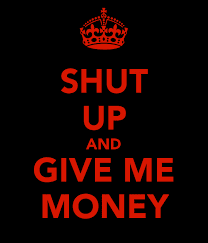 Yes, Virginia, it is a good idea to follow up your wonderful end-of-year appeal letter with email. But not any old email will do.
Yes, Virginia, it is a good idea to follow up your wonderful end-of-year appeal letter with email. But not any old email will do.
Remember, the person receiving your email gets as many messages in their inbox as you do! And what do you do with the majority of those messages? You scroll past them…to find messages from people you actually want to hear from.
Remember Why You Send an End-of-Year Email
Your goal is not merely to raise money. It’s to become one of the people that they actually want to hear from. You want every message–including the “asks”–to make your donors feel happy to be on your list.
Unfortunately, I have seen too many end-of-year emails that do just the opposite.
End-of-Year Email that Might End the Relationship
The nonprofit says, “Help us meet our year-end goal.”
- The donor thinks, “Why does that matter to me? The goal is just a number. So is the date. You may care about your goal, but why should I?”
The nonprofit says, “It’s not too late to make your tax-deductible donation in 2016.”
- The donor thinks, “I don’t give because of the tax deduction. Sure, I’ll take it, because who wouldn’t accept a few dollars back on their taxes? But I need a reason to give to you.”
The nonprofit says, “We haven’t heard from you yet.”
- The donor thinks, “Oh, you noticed, did you? Good. But what makes you think you can just expect me to give?”
Ending the Relationship Before It Begins
And here’s the opening line of the worst email my wife and I received in 2016.
- Our records indicate you haven’t donated to the [name of organization] yet this year. We need you now more than ever!
Not only does this nonprofit take a stuffy tone with us (“our records show”). Not only does its email focus on what the organization needs and not what we, the donors, want to accomplish. To the best of our knowledge, Rona and I have never given to this organization before.
My more suspicious side says this nonprofit is trying to scam us into believing we just forgot to give. They’re like the magazines that tell you “It’s time to renew your subscription” when you never subscribed before. That’s ugly. Nonprofits can do better than that!
But let’s give them the benefit of the doubt. Maybe they sincerely can’t tell the difference between their longtime donors and their first-time prospects. To the donors, it doesn’t matter if the nonprofit is deceptive or incompetent. That nonprofit has lost our trust.
Want to Do Better? Let Me Help
It’s a new year, and it’s time to plan a communications strategy that will make your email the first thing your donors want to read.
Email me, dennis@twofisch.com, and let’s make 2017 better from the start–for you and your donors.


